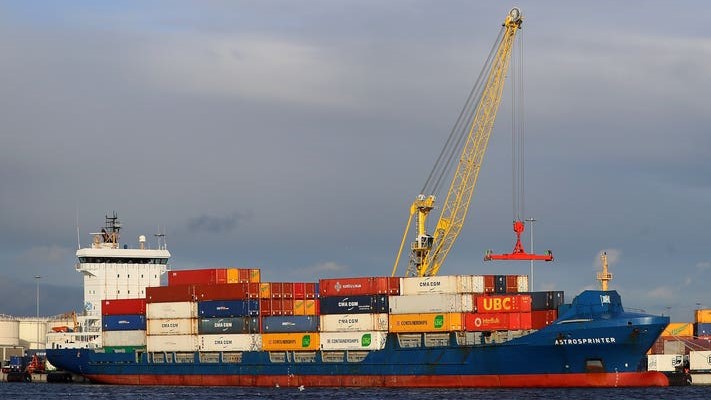Incoming Trade From Great Britain Remains At ‘Half The Level Of 2020’

Incoming trade to Ireland from Great Britain remains at about half of the level seen at the same time last year, almost a month after Brexit, a Department of Transport official has said.
Irish customs officials say they are “concerned” about the low levels of goods coming into the country, as hauliers and importers grapple with new customs red tape.
Eddie Burke, from the Department of Transport, said he would like to see the volume of incoming goods increase quicker than is currently happening.
He told a briefing at Dublin Port on Monday: “What we’ve seen is very low volumes coming across from GB. We meet with the shipping companies and keep in contact with them on daily basis. And likewise, with the hauliers.
“What we’ve seen from them and heard from them is that about 50% of business is coming across from GB that would have been the case this time last year.
“That’s a matter of concern. It’s a matter of concern for them, because the sea loads that are in the UK, and across the UK, are not coming through.”
Mr Burke said delays were happening “as people come to grips with the new reality and the difficulty of adapting to what are now quite complex procedures of trading with a third country”.
He said that lorry drivers and hauliers “tend to be the ones who suffer” as they are often left waiting at ports while their customers get the correct paperwork in order.
He added: “Until we see those volumes coming from GB, we will remain concerned as to why that’s happening. We would like to see those rates increase quicker than they are at the moment.”
Mr Burke said that pre-Christmas stockpiling was at record levels in 2020, which in part explained the low level of incoming goods.
But he added: “There is, though, from what we are hearing, still goods stuck in the UK, in GB that are trying to get across, and haven’t been able to get across yet.”
Tom Talbot, the head of Revenue’s customs operations at Dublin Port, said about 79% of goods are being “green-routed” out of the port on arrival from Great Britain.
This means that they can immediately leave the port without delay, as all of the necessary paperwork has been prepared and submitted in advance.

About 15% of imports were “orange-routed”, meaning they had outstanding documents to be checked.
The remaining 6% was “red-routed” – which meant they were sent for physical inspections.
Mr Talbot said: “We know that some businesses are successfully continuing to trade with Great Britain,” he said.
“And this has been very much down to their level of preparation as we’ve said a number of times, and also their ability to address the challenges that this new change brought upon everybody.”
But he acknowledged that many businesses, large and small, were experiencing “severe difficulty” adapting to the new customs procedures.




